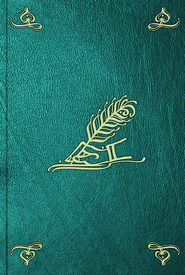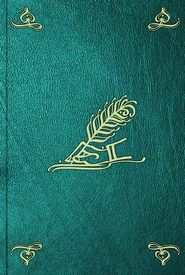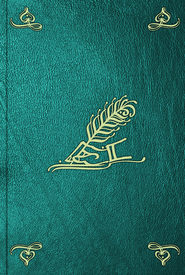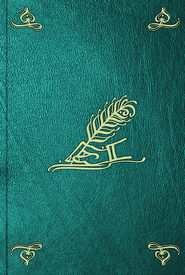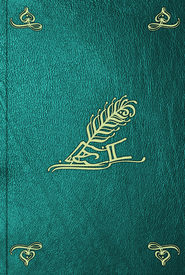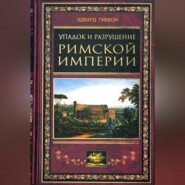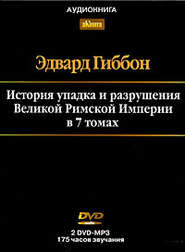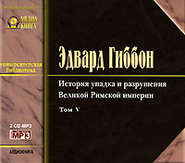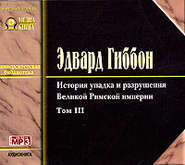По всем вопросам обращайтесь на: info@litportal.ru
(©) 2003-2025.
✖
Private Letters of Edward Gibbon (1753-1794) Volume 1 (of 2)
Настройки чтения
Размер шрифта
Высота строк
Поля
The Duchess of Kingston was Countess of Bristol, her previous marriage with Augustus Hervey (afterwards Earl of Bristol) having been declared legal. See note to Letter 259.
Footnote_326_326
Sir John Russell, Bart., of Chequers, Bucks., married on October 25, 1774, Miss Carey, daughter of General Carey, and granddaughter of Lord Falkland.
Footnote_327_327
Two commissioners, Admiral Lord Howe and his brother, General Howe, were empowered, in May, 1776, to treat with the colonists, receive submissions, grant pardons, and inquire into grievances. Lord Howe reached Sandy Hook on July 12th. On July 4 the Declaration of Independence had been adopted by Congress, and the mission was too late.
Footnote_328_328
Lord Palmerston was elected a member of the Catch Club in 1771.
Footnote_329_329
Almack's Club, in Pall Mall, surpassed White's in the extravagance of its gambling. Brooks, a money-lender and wine-merchant, took up the management of the club, which was dispersed when he opened the new premises of Brooks' Club, in St. James's Street, in 1778.
Footnote_330_330
Mr. Child (The English and Scottish Popular Ballads, part iii. p. 199, Boston, 1885) says that Mallet passed off as his own, with very slight changes, a ballad called William and Margaret, a copy of which, dated 1711, has been discovered. But the resemblances between the two poems scarcely seem to justify Mr. Child's criticism, though Gibbon's statement confirms it. The writer of the article on Mallet, in the Dictionary of National Biography, throws no doubts upon Mallet being the author of William and Margaret, nor does the writer on Marvell, in the same series, lay any claim for Marvell to its authorship. Thomas, better known as "Hesiod," Cooke, who published his Life and Writings of Andrew Marvell in 1726, and who not only disliked Mallet, but characterised his William and Margaret as "trash," nowhere suggests that Mallet was not the author. The first stanza is taken from Beaumont and Fletcher's comedy of The Knight of the Burning Pestle, where old Merrythought sings —
"When it was grown to dark midnight,
And all were fast asleep,
In came Margaret's grimly ghost,
And stood at William's feet."
In Percy's Reliques, vol. iii. p. 331 (ed. Dodsley, 1759), Mallet's poem is printed with the following note: "This Ballad, which appeared in some of the public Newspapers in or before the year 1724, came from the pen of David Mallet, Esq.; who in the edition of his poems, 3 vols., 1759, informs us that the plan was suggested by the four verses quoted above ***, which he supposed to be the beginning of some ballad now lost."
Footnote_331_331
The report of General Lee's capture was false. He was taken prisoner December 13, 1776.
Footnote_332_332
Beilby Porteus, Bishop of Chester, afterwards Bishop of London, had been chaplain to Archbishop Secker, whose Charges he published in 1769. He did not publish any reply to Gibbon's Decline and Fall of the Roman Empire.
Footnote_333_333
Sir Guy Carleton was gazetted K.B., July 6, 1776.
Footnote_334_334
The Hon. John Damer, son of Lord Milton, shot himself, August 15, 1776. To his widow, the daughter of General Conway, Horace Walpole left Strawberry Hill for her life.
Footnote_335_335
On August 27, 1776, General Howe defeated the Americans at the battle of Brooklyn or Long Island.
Footnote_336_336
Louisa, second daughter of Mr. and Mrs. Holroyd.
Footnote_337_337
An Apology for Christianity, in a Series of Letters to Edward Gibbon, Esq., by Richard Watson, D.D. (afterwards Bishop of Llandaff). Gibbon had a great respect for Dr. Watson, at this time Professor of Divinity at Cambridge, as "a prelate of a large mind and liberal spirit." He writes (November 2, 1776) to "express his sense of the liberal treatment which he has received from so candid an adversary."
Footnote_338_338
On September 15 General Howe occupied New York, which had been evacuated by the American troops; a few days later a great part of the city was destroyed by incendiaries.
Footnote_339_339
Lord Chatham boasted that he had conquered America in Germany. Wilkes, in March, 1776, had said, alluding to Lord G. Germain's misconduct at Minden and Chatham's boast, that Lord George might conquer America, though, he believed, it would not be in Germany. Gibbon apparently refers to this remark, and to Lord George's hope that he might recover his lost reputation by the reconquest of America.
Footnote_340_340
Parliament met October 31, 1776. An amendment to the address, expressing pacific sentiments, was negatived by 242 to 87, and the address carried by 232 to 83.
Footnote_341_341
The proclamation, issued September 19, 1776, was addressed to the people of America, promised a revision of recent legislation, and was designed to induce separate colonies to negotiate with the commissioners independently of Congress. It was not published in the official Gazettes, which had appeared on November 4 and 5, 1776.
Footnote_342_342
J. B. Antoine Suard (1733-1817), whose acquaintance Gibbon made at Paris in 1763, had translated Robertson's History of Charles V. in 1771, and was now at work on a translation of his History of America, which was published in 1778.
Footnote_343_343
In a letter, dated "Ferney, July 19, 1776," and addressed to M. d'Argenteuil, Voltaire wrote strongly against a projected translation of Shakespeare. He claims that he himself had first pointed out to the French some pearls which he found on Shakespeare's "enormous dung-heap." "I little thought," he continues, "that I should help to tread under foot the crowns of Racine and Corneille, in order to adorn the head of a barbarian and a buffoon." The letter was read aloud before the Academicians. Mrs. Montague, who was present, when she heard the words "énorme fumier," exclaimed, "C'est un fumier qui a fertilisé une terre bien ingrate."
Footnote_344_344
On November 22, letters arrived from Sir Guy Carleton giving an account of the destruction of the American fleet on Lake Champlain, October 11-13, 1776. Arnold, after destroying Crown Point, retired to Ticonderoga. General Burgoyne returned to England on December 9, 1776.
Footnote_345_345
Remarks on the Two Last Chapters of Mr. Gibbon's History of the Decline and Fall of the Roman Empire, by James Chelsum, D.D. London, 1776. 8vo.
Footnote_346_346
With Lord and Lady Ossory.
Footnote_347_347
The translation, commenced by M. Le Clerc de Septchênes, and completed by other hands, passed through numerous editions in France. It was the foundation of an Italian version published at Pisa in 1779-86.
Footnote_348_348







